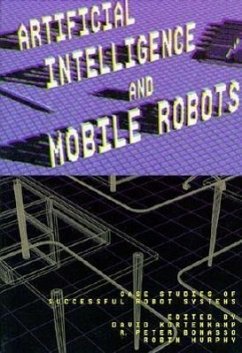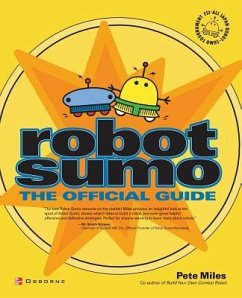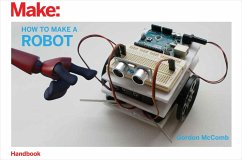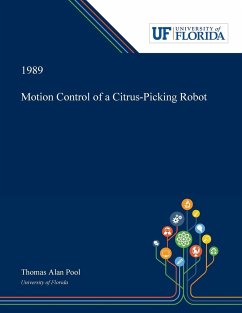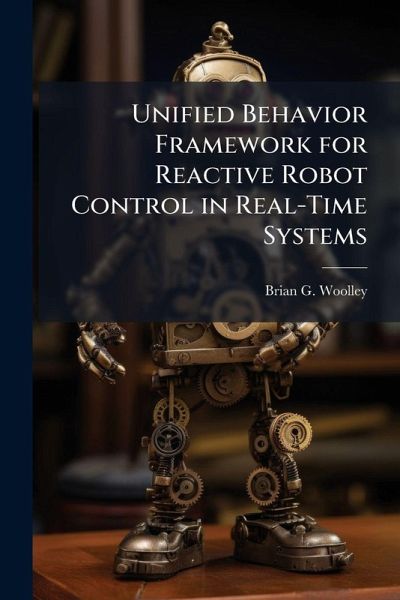
Unified Behavior Framework for Reactive Robot Control in Real-Time Systems
Versandkostenfrei!
Versandfertig in über 4 Wochen
17,99 €
inkl. MwSt.
Weitere Ausgaben:

PAYBACK Punkte
9 °P sammeln!
Endeavors in mobile robotics focus on developing autonomous vehicles that operate in dynamic and uncertain environments. By reducing the need for human-in-the-loop control, unmanned vehicles are utilized to achieve tasks considered dull or dangerous by humans. Because unexpected latency can adversely affect the quality of an autonomous system's operations, which in turn can affect lives and property in the real-world, their ability to detect and handle external events is paramount to providing safe and dependable operation. Behavior-based systems form the basis of autonomous control for many r...
Endeavors in mobile robotics focus on developing autonomous vehicles that operate in dynamic and uncertain environments. By reducing the need for human-in-the-loop control, unmanned vehicles are utilized to achieve tasks considered dull or dangerous by humans. Because unexpected latency can adversely affect the quality of an autonomous system's operations, which in turn can affect lives and property in the real-world, their ability to detect and handle external events is paramount to providing safe and dependable operation. Behavior-based systems form the basis of autonomous control for many robots. This thesis presents the unified behavior framework, a new and novel approach which incorporates the critical ideas and concepts of the existing reactive controllers in an effort to simplify development without locking the system developer into using any single behavior system. The modular design of the framework is based on modern software engineering principles and only specifies a functional interface for components, leaving the implementation details to the developers. In addition to its use of industry standard techniques in the design of reactive controllers, the unified behavior framework guarantees the responsiveness of routines that are critical to the vehicle's safe operation by allowing individual behaviors to be scheduled by a real-time process controller. The experiments in this thesis demonstrate the ability of the framework to: 1) interchange behavioral components during execution to generate various global behavior attributes; 2) apply genetic programming techniques to automate the discovery of effective structures for a domain that are up to 122 percent better than those crafted by an expert; and 3) leverage real-time scheduling technologies to guarantee the responsiveness of time critical routines regardless of the system's computational load. This work has been selected by scholars as being culturally important, and is part of the knowledge base of civilization as we know it. This work was reproduced from the original artifact, and remains as true to the original work as possible. Therefore, you will see the original copyright references, library stamps (as most of these works have been housed in our most important libraries around the world), and other notations in the work. This work is in the public domain in the United States of America, and possibly other nations. Within the United States, you may freely copy and distribute this work, as no entity (individual or corporate) has a copyright on the body of the work. As a reproduction of a historical artifact, this work may contain missing or blurred pages, poor pictures, errant marks, etc. Scholars believe, and we concur, that this work is important enough to be preserved, reproduced, and made generally available to the public. We appreciate your support of the preservation process, and thank you for being an important part of keeping this knowledge alive and relevant.




